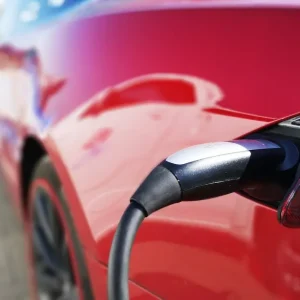Plans to install more than 1,000 new EV chargers through a new government-backed pilot scheme have been welcomed by fleet industry figures.
The new Local EV Infrastructure (LEVI) scheme is aiming to improve charging infrastructure for households without driveways, including both on-street chargers and larger charging hubs.
Local authority areas which have won access to the pilot fund include Barnet, Dorset, Durham, Kent, Midlands Connect (led by Lincolnshire), North Yorkshire, Nottinghamshire, Suffolk, and Warrington.
Funding for the first tranche of the planned £450 million scheme includes £10 million from the government, £9 million in private funding, and £1.9 million from local authorities.
According to the government, the LEVI fund builds on the On-Street Residential Chargepoint Scheme, which has so far installed nearly 2,900 chargers, with funding provided for close to 10,000 more in the future.
Decarbonisation Minister Trudy Harrison said: “We want to expand and grow our world-leading network of EV chargepoints, working closely with industry and local government, making it even easier for those without driveways to charge their electric vehicles and support the switch to cleaner travel.
“This scheme will help to level up electric vehicle infrastructure across the country, so that everyone can benefit from healthier neighbourhoods and cleaner air.”
Reacting to the announcement, BVRLA chief executive Gerry Keaney said: “Getting the EV charging infrastructure right is the difference between the UK meeting its net zero targets and falling short. It remains a massive barrier to fleet users making the switch as investment to date has prioritised private users and overlooked the varied requirements of those driving for business.
“Strategic investment that gets stakeholders representing all road users and vehicle types around the same table is the answer. The LEVI pilot scheme is a very positive development.
“These trials mark the perfect opportunity for forward-thinking regions to become beacons of how to meet fleet and private user needs together. They are creating the templates for the rest of the UK to follow.
“Armed with the BVRLA Fleet Charging Guide, which gives local authorities distinct, actionable recommendations for developing a charging network that works for all, we are ready to work in close collaboration with the winning regions.”
Giving his reaction, Jon Lawes, managing director of leasing company Novuna Vehicle Solutions, also welcomed the announcement, although he warned there was still much more to be done to bring public charging up to the required standard.
He said: “Today’s announcement is a welcome step in the right direction, particularly as many of the local authorities involved in the programme have fewer public EV charging points than the national average of 48 per 100,000 of the population.
“However, there is still a considerable way to go to provide adequate EV charging infrastructure – demand for electric vehicles continues to rise up and down the country, yet public charging provision is failing to keep pace with EV registrations and remains insufficient in the majority of parts of the UK.”
Lex Autolease electrification propositions lead Meryem Brassington said that expansion of the UK’s public charging network was critical if the country was to lead the way on electrification.
She said: “Electric vehicle adoption levels are dominating the new car market and for this momentum to continue, drivers need access to widely available charging stations. This is particularly important for motorists without driveways to ensure that they don’t get left behind on the switch to electric.
“The government’s new £20million scheme will go some way to boosting the charging infrastructure across England and bringing power to many more EV drivers. Policymakers must continue to invest in the rollout of chargepoints outside of larger towns and cities to allow even more motorists the opportunity to go electric.”





